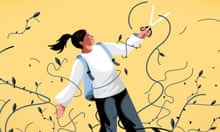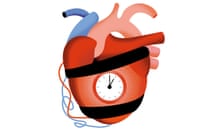“Anxiety” has been chosen by children as their word of the year for 2021, according to new research from Oxford University Press – but teachers have plumped for “resilience”.
OUP’s academics have analysed the evolution of children’s language, and how they use it to reflect their emotions and experiences, for more than a decade. They draw from the largest children’s English language corpus in the world, the Oxford Children’s Corpus. This year, they chose to focus on wellbeing as their research focus, given the impact of Covid-19 on education, and concerns about children’s mental health.
OUP surveyed more than 8,000 children aged between seven and 14, from 85 UK schools, asking them to select the top words they would use when discussing health and wellbeing. While “anxiety” came in top, chosen by 21% of children, it was followed by “challenging”, chosen by 19%, “isolate” (14%), “wellbeing” (13%) and “resilience” (12%).
The teachers were also asked for the word they used most often when talking to their pupils about health and wellbeing. “Resilience” was their top choice, named by 31%, followed by “challenging” (19%) and “wellbeing” (18%).
The Children’s Society’s executive director of social impact, Joe Jenkins, said it was “concerning” that anxiety had been chosen as the No 1 word, but not surprising, “when you consider all the restrictions and changes children had to endure”.
He pointed to the Society’s Good Childhood Report from last year, which found that while most children showed “great resilience”, 8% of 10-to-17-year-olds reported that they had coped less well with the changes to life. “Having conversations and using the right language is incredibly important when supporting children if they are feeling anxious, isolated or going through tough challenges, and it’s also crucial children are able to express how they are feeling,” he said.
OUP’s director of early childhood and home education, Helen Freeman, agreed. “The findings demonstrate the role we all play in making sure children have the words they need to be able to express themselves and that, as adults, we are aware the language we use around children can significantly influence their learning and wellbeing,” she said.
The Oxford English Dictionary chose “vax” as its overall word of the year, saying that it had “injected itself into the bloodstream of the English language” during the pandemic.









